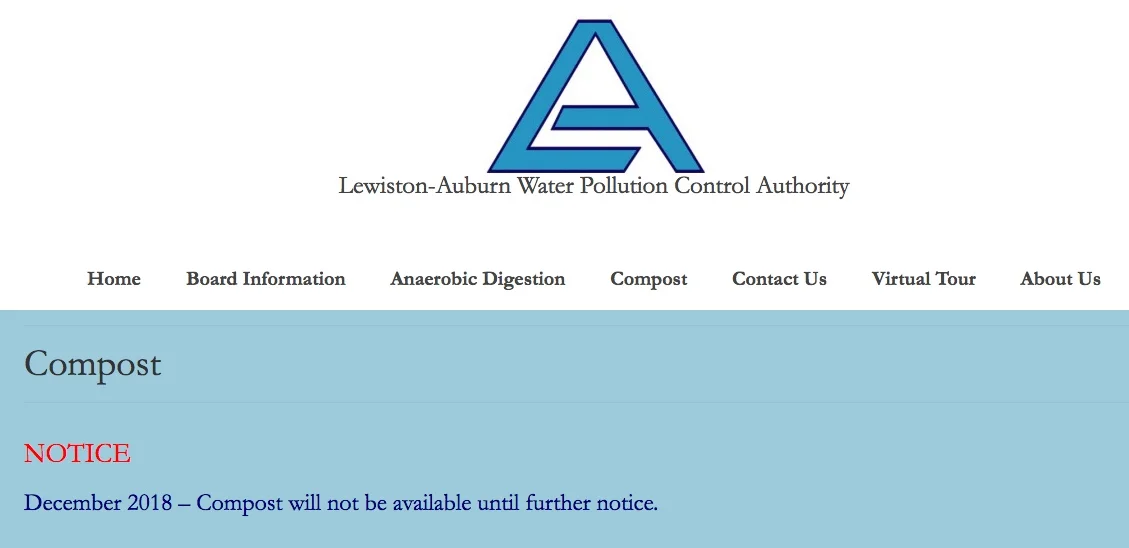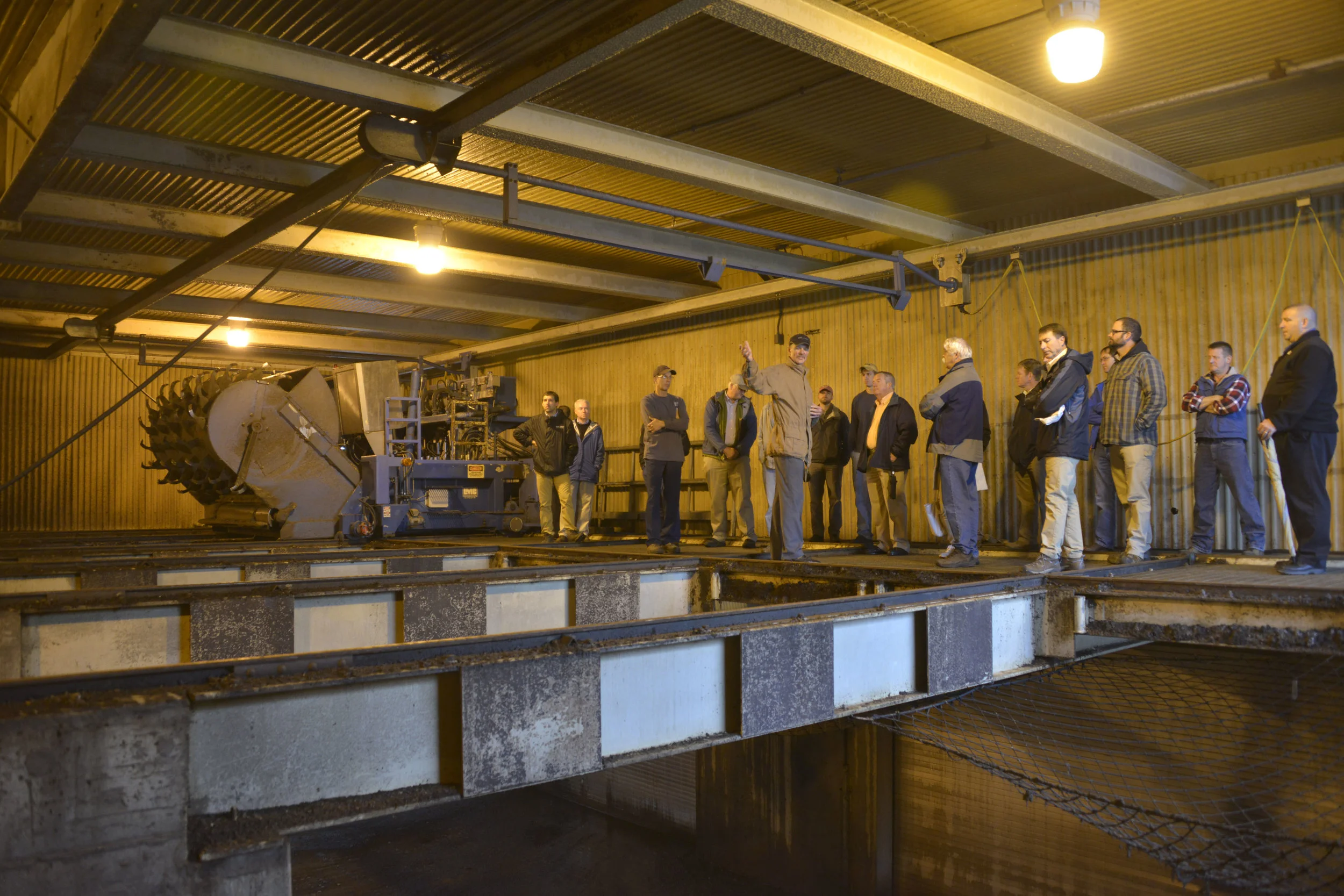12/20/18
LAWPCA Compost Facility Closing
An early aerial (airplane) photo of the LAWPCA composting facility. Photo courtesy of LAWPCA.
In 1981, the Lewiston-Auburn Water Pollution Control Authority in south-central Maine conducted 1- and 5-acre trials land applying their lime-treated sewage sludge for agronomic use. That led to farm use that, in 1987, involved 4200 tons of land application. But most of the solids - nearly 15,000 tons - continued to go to landfills. When current Superintendent Mac Richardson became involved as the 1990s came on, concerns about land application odors and the increasing cost of landfill disposal ($65/ton in 1989) pointed to other options. In March 1993, the LAWPCA biosolids compost facility opened on a former 118-acre farm in Auburn. It included state-of-the-art, enclosed, agitated bay composting. It has operated continually since then until now, feeding the soil amendments markets in central Maine and beyond with quality, nutrient-rich compost.
This LAWPCA website notice provides no sense of the history, nor the impact of the closing, of one of the region’s pioneering, successful biosolids composting programs.
This month, the facility is ceasing operations for the foreseeable future.
Beginning in May, 2013, most of the solids produced at the LAWPCA wastewater treatment facility in Lewiston have been treated with an award-winning anaerobic digestion (AD) system. The resulting biosolids - 50% less than before digestion – have proved excellent for direct land application. LAWPCA’s need for the compost facility was lessened, and the Authority began to sell excess capacity. For the past ~5 years, the compost facility has provided an option in the biosolids recycling market in Maine, processing wastewater solids from other communities. Between that and treating outside organic wastes (e.g. food scraps, fats, oils, and grease) in its AD system, LAWPCA has been living the vision of a Water Resource Recovery Facility - a central hub for managing much of its communities’ challenging organic “wastes.”
LAWPCA provided numerous tours of the compost facility, including as part of the North East Residuals & Biosolids Conference in Oct. 2014.
But now, the trucks have stopped rolling in to the compost facility. About 300 yards of finished compost remain in stock, and that will be sold off in the coming months. The facility will be maintained, pending decisions on potential future use.
What happened? Some years ago, groundwater testing indicated elevated levels of nitrate in the groundwater beneath the compost facility. LAWPCA worked diligently with Maine DEP to determine the cause and possible mitigation measures. Many tests were run, hypotheses tested, and discussions held. Ultimately, it appears that nitrate is leaking from the biofilter, through the liner and/or associated piping system. Further details can’t be determined without removing the biofilter, which will now be done, to stop any further nitrate leaching. Groundwater nitrate concerns are expected to dissipate soon after.
It is ironic that the odor control system ended up causing this compost facility closure. Mac Richardson, a leader in the biosolids management field in New England and NEBRA founding member and former member of the NEBRA Board, has related his 25+ years of experience with biosolids management in presentations several times in recent years. His refined gems of advice include these “keys to success” in biosolids management:
Public Relations and “a thick skin”
Testing & rigorous management of biosolids quality
Strict adherence to all rules and regulations
Flexibility and a back-up plan
In the end, its mostly about odor!
LAWPCA has demonstrated these tenets of quality over 3 decades. But it was the odor control system, not odors, that led to this compost facility’s current demise.
Markets for solids management in New England are stretched thin right now. Prices have been rising and outlets are becoming harder to find. The closure of a highly-successful biosolids management facility that operated for ~26 years is a blow to recycling in this region. Perhaps it can be re-commissioned in the future. But any decision on that is a year or more away, according to Richardson.



